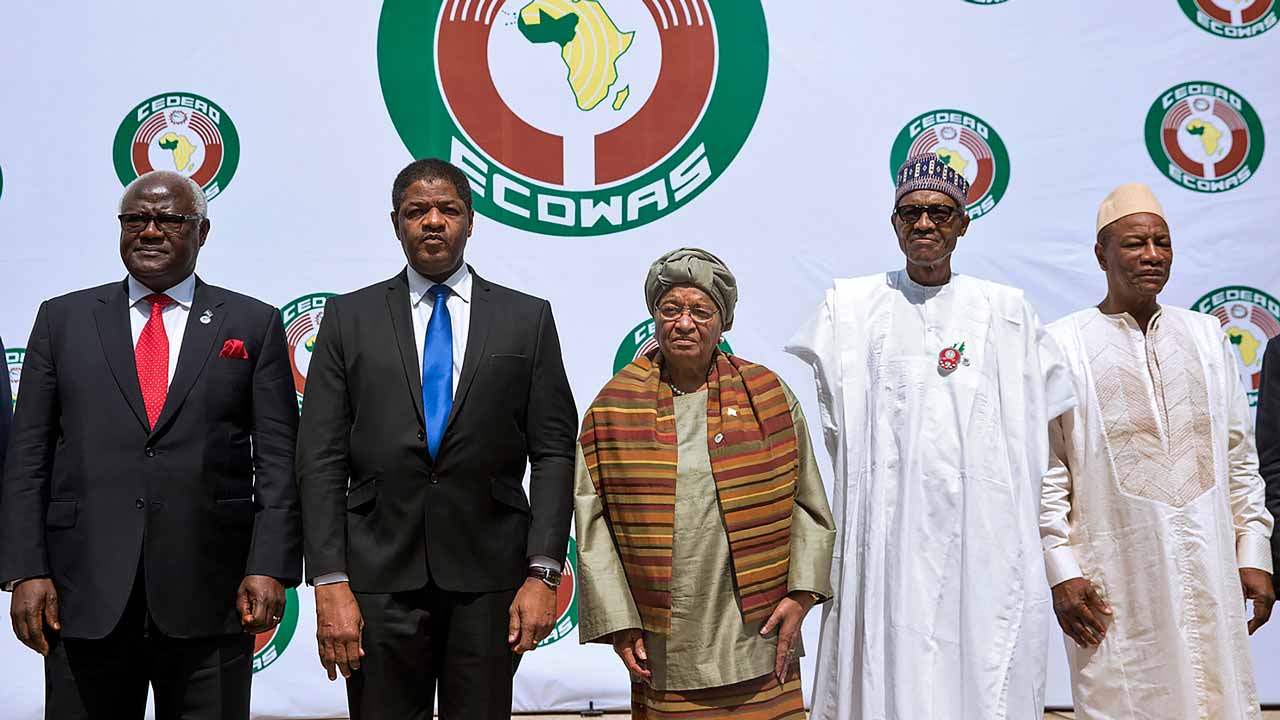- ECOWAS Issues Deadline to Resolve Gambian Crisis
Chairperson of the of the Economic Community Of West African States (ECOWAS) Heads of State and Government and the Liberian President, Ellen Johnson Sirleaf, has issued deadline for the resolution of the political logjam in Gambia.
In her address at the 50th Ordinary Session of the Authority and Heads of State and Government of ECOWAS in Abuja, she noted that the progress made by the ECOWAS Mission led by her to Gambia on December 13, to mediate in the logjam was successful, but stressed that the will of the people as expressed through their votes in the December 1, must be respected.
Gambia had conducted a presidential election on December 1, which saw the opposition candidate, Adama Barrow defeating the incumbent president, Yahya Jammeh. Shortly after the election the incumbent president conceded defeat. However, on December 10, Jammeh rescinded his concession and called for a fresh election.
The ECOWAS Mission led by Sirleaf, comprising Presidents John Mahama, Muhammadu Buhari and Ernest Bai Koroma, accompanied by Dr. Mohamed Chambas, Special Representative of the UN Secretary General to West Africa and the Sahel, met with all the parties in Banjul on December 13, to ensure that the will of the people was respected.
But Sirleaf has called for the resolution of the political impasse before January 19, the date for the inauguration of the new government. She said: “It is now important that the Authority, at this Summit, considers recommended measures to bring this matter to successful conclusion before January 19, the constituted date when the mandate of the incumbent President expires.”
On security in the sub-region, Sirleaf expressed concern on the recurring terrorist attacks on civilians and the military by the Boko Haram insurgents in Nigeria and the Lake Chad Basin.
She said: “We remain very concerned about the Boko Haram recurring attacks in Nigeria and other countries of the Lake Chad Basin. There is equal concern regarding terrorist attacks on civilians and military targets in Mali. The negative impact of these attacks does not take away from the significant progress of President Kieta and his government in the implementation of the Malian Peace and Reconciliation Agreements.
“Moreover, the Chiefs of Defence Staff at recent regional meetings have formulated strategic security interventions to address these terrorist activities.
“Another challenge in the region is the Transhumance security, which has resulted in the loss of lives and negative impact on regional food security. I am pleased that the Commission has taken the necessary actions to address this challenge from a human security perspective.
“In this regard, the Authority expects an integrated approach, which will support the Commission’s efforts at deepening Regional Livestock Movement Management Control System, noting that the Nigerian approach to managing its Transhumance challenges is a model that can be shared at bilateral levels with other Member States encountering the same problems.”
Reacting to President Muhammadu Buhari’s call for reduction in the cost of governance across the regional body’s institution, she said president of the ECOWAS Commission is already taking firm action to rationalise the structure of the commission, and to contain cost through more efficient financial management and effective use of resources consistent with the current economic situation.
President Buhari had called for a reduction in the cost of governance across all the regional body’s institutions, as part of the effort to halt the current global economic crisis.
In his welcome address, he stressed that it was imperative that measures be urgently taken to review the ECOWAS Treaty. This, according to him, is in order to make the regional body responsive to new national, regional and global challenges.
He also called on the regional leaders to make deliberate efforts to improve on governance and accountability at all levels, while ensuring the implementation of development programmes and schemes in their respective countries.


 Forex3 weeks ago
Forex3 weeks ago
 Naira2 weeks ago
Naira2 weeks ago
 Billionaire Watch2 weeks ago
Billionaire Watch2 weeks ago



 Naira3 weeks ago
Naira3 weeks ago






 Naira2 weeks ago
Naira2 weeks ago




 Naira1 week ago
Naira1 week ago




 Naira4 weeks ago
Naira4 weeks ago






 Naira1 week ago
Naira1 week ago























